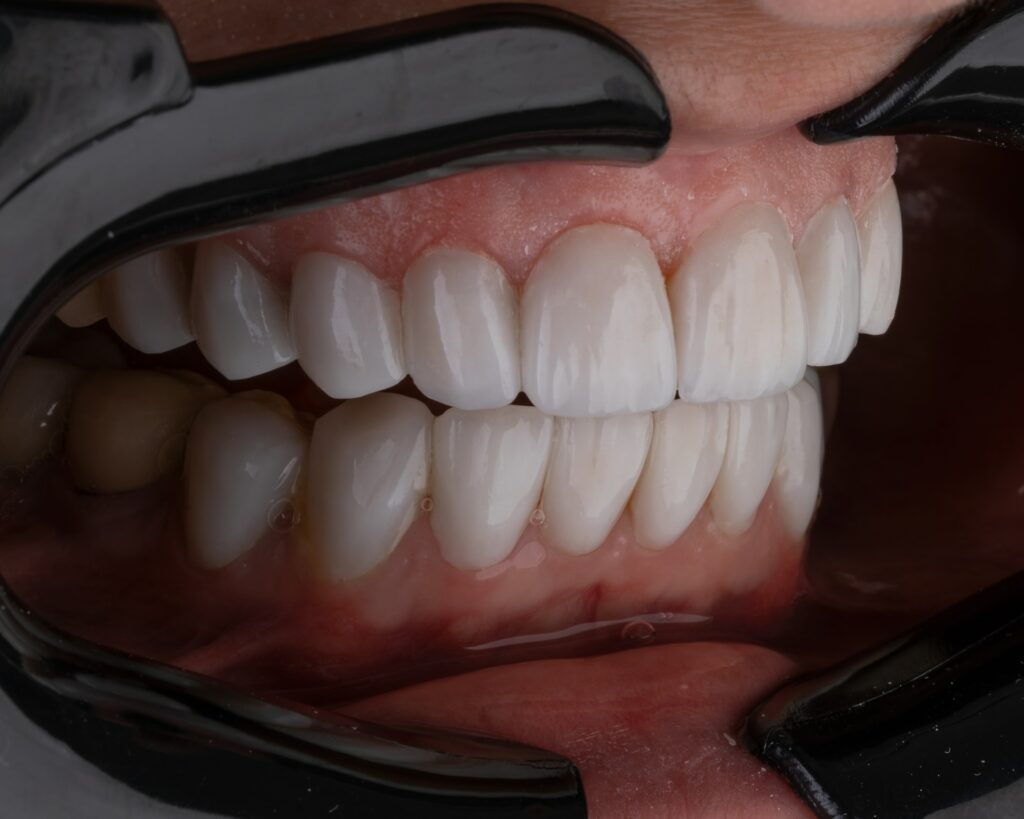


Tired of waking up with a sore jaw and damaged teeth? Do you want to know how to stop grinding teeth in sleep naturally? Sleep bruxism, or grinding your teeth in your sleep, can be frustrating and harmful.
In this article, we’ll explore various remedies and techniques to address sleep bruxism and its effects. From home care tips to mouth exercises and massages, we’ll cover it all.
The causes of teeth grinding while asleep or, sleep bruxism include stress, anxiety, and the release of tension. It is an involuntary response to stress, fear, or anger. It can occur while you’re awake or asleep, often going unnoticed when you’re sleeping.
The prevalence of sleep bruxism is difficult to determine due to a lack of awareness, but it’s common during childhood and associated with the process of teeth coming in as an infant. Additionally, sleep bruxism can be linked to sleep problems and existing disorders such as sleep apnea, Parkinson’s disease, epilepsy, and ADHD. Certain drugs can also cause teeth grinding.
Understanding the causes of sleep bruxism is crucial in finding effective natural remedies to alleviate this condition.

Teeth grinding, also known as sleep bruxism, can have significant effects on your oral health and overall well-being. Grinding your teeth in sleep can lead to painful and eroded teeth over time, as well as damage to fillings, dental crowns, and implants. The noise of grinding teeth can also disturb your partner’s sleep.
If you experience symptoms of teeth grinding, such as jaw muscle pain or headaches, it’s important to seek treatment. There are home remedies for teeth grinding, such as avoiding hard or sticky foods, using hot or cold compresses to soothe pain, and practicing mouth exercises to relax the jaw muscles. However, it’s recommended to consult with a dentist or doctor for optimal treatment, as teeth grinding can be a sign of an underlying sleep disorder or other health condition.
When teeth grinding occurs during sleep, it can cause serious issues for your teeth and jaw. Up to 250 pounds of force can be applied during sleep bruxism, leading to pain, erosion of teeth, and damage to dental work.
Here is how you can stop grinding teeth in sleep naturally:
Mouth exercises are another way to stop grinding teeth in sleep naturally. Here are three exercises that can help relax the muscles in your jaw and keep teeth grinding at bay:
To relieve muscle tension and pain associated with teeth grinding, incorporate massage techniques into your routine.
Massage can be an effective natural solution for grinding teeth in sleep. By targeting the jaw and nearby muscles, massage can help relax and relieve tension in these areas.
You can seek the assistance of a professional massage therapist or physical therapist, who can provide massages or teach you techniques for self-massage.
If you want to protect your teeth and reduce the impact of sleep bruxism, it’s important to consider the importance of using mouthguards. Mouthguards are an effective tool in managing teeth grinding during sleep. Here’s why they’re essential:
1. Protection: Mouthguards provide a barrier between your upper and lower teeth, preventing them from grinding against each other. This helps to prevent tooth damage, such as cracks, chips, and wear.
2. Muscle Relaxation: Some mouthguards are designed to relax the chewing muscles by keeping the jaw slightly open. This can help reduce the severity of teeth grinding and alleviate muscle tension in the jaw.
3. Decreased Impact: While mouthguards don’t cure sleep bruxism, they can significantly decrease its impact. By wearing a mouthguard, you can minimize the force applied to your teeth during grinding and reduce the risk of long-term damage.

In conclusion, if you’re tired of waking up with a sore jaw and damaged teeth from grinding your teeth in your sleep, there are natural solutions that can help.
From home remedies and mouth exercises to massage techniques and the use of mouthguards, there are various approaches to address sleep bruxism and its effects.
It’s important to take action early to prevent further damage and maintain your oral health.
Say goodbye to discomfort and potential long-term effects by exploring these natural solutions for nighttime teeth grinding.
Kuang, B., Li, D., Lobbezoo, F., de Vries, R., Hilgevoord, A., de Vries, N., Huynh, N., Lavigne, G., & Aarab, G. (2022). Associations between sleep bruxism and other sleep-related disorders in adults: a systematic review. Sleep medicine, 89, 31–47. https://doi.org/10.1016/j.sleep.2021.11.008
Cleveland Clinic (2023) Bruxism (Teeth Grinding) [online]. Available at: https://my.clevelandclinic.org/health/diseases/10955-teeth-grinding-bruxism